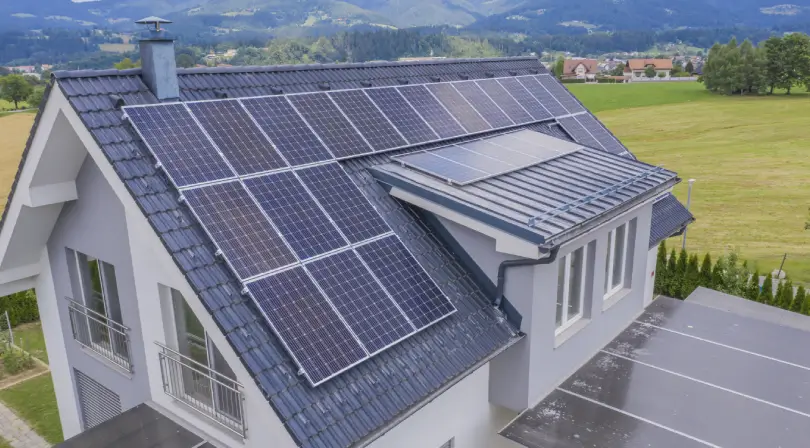Description:
- Cost of electricity from the main grid is rising exorbitantly.
- Your own residential solar solution will reduce your bills as well as your carbon footprint.
- The central and provincial governments are providing incentives like tax relief to solar power producers.
- Installing a residential solar solution will grow the value of your home.
Off-Grid Solar Systems
Hybrid Solar Systems
Solar panels are devices that convert sunlight into electricity. They are made up of photovoltaic cells, which generate direct current (DC) electricity when exposed to sunlight. This electricity is then converted into alternating current (AC) electricity, which can be used to power homes and businesses.
Installing solar panels can lead to numerous benefits, including:
- Reduced electricity bills
- Lower carbon footprint and environmental impact
- Increased property value
- Energy independence and security
- Potential government incentives and tax credits
The cost of solar panels can vary depending on factors such as the size of the system, the type of panels, and installation costs. Generally, prices have been decreasing over time due to advancements in technology and increased competition in the industry.
Before installing solar panels, it’s essential to consider factors such as:
- Available sunlight in your location
- Roof orientation and shading
- Local regulations and permits
- Financial incentives and financing options
- The energy efficiency of your home or business
Solar panels typically come with warranties ranging from 25 to 30 years, but they can last much longer with proper maintenance. Most panels degrade at a rate of around 0.5% to 1% per year, meaning they can still produce electricity for decades after the warranty period.
Solar panels are relatively low maintenance, but they may require occasional cleaning to remove dirt and debris that can reduce their efficiency. Additionally, it’s essential to monitor the system periodically for any signs of damage or malfunction.
Solar panels only generate electricity when exposed to sunlight. However, many solar energy systems are connected to the grid, allowing you to draw electricity from the grid when your panels are not producing enough power, such as at night or during cloudy weather.
Yes, excess energy generated by solar panels can be stored in batteries for later use. Battery storage systems allow you to store energy during times of peak production and use it when needed, such as during periods of low sunlight or during power outages.
If you produce more energy than you consume, you may be eligible for net metering, where you can sell excess electricity back to the grid. This can help offset the cost of your electricity bill or even earn you credits that can be applied to future bills.

